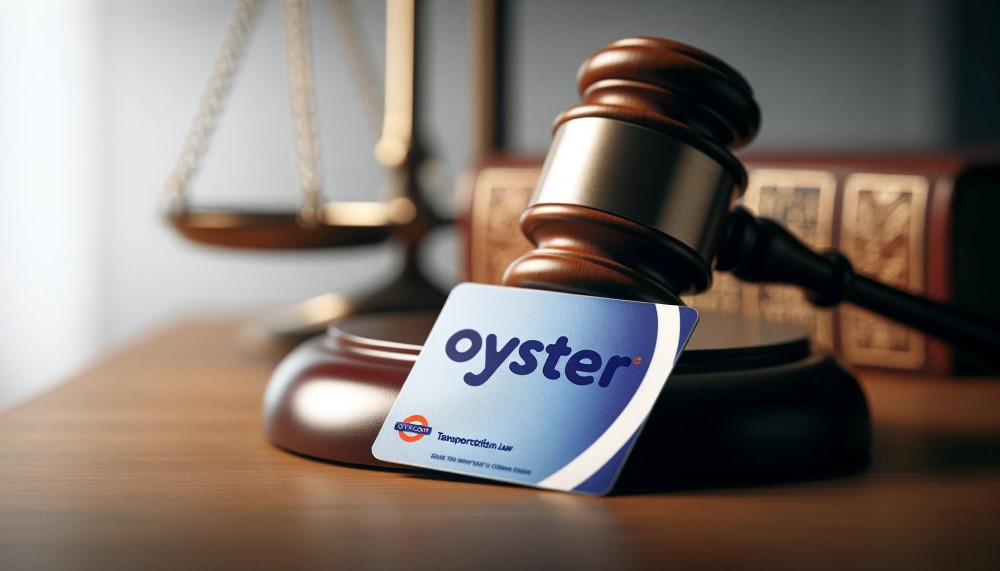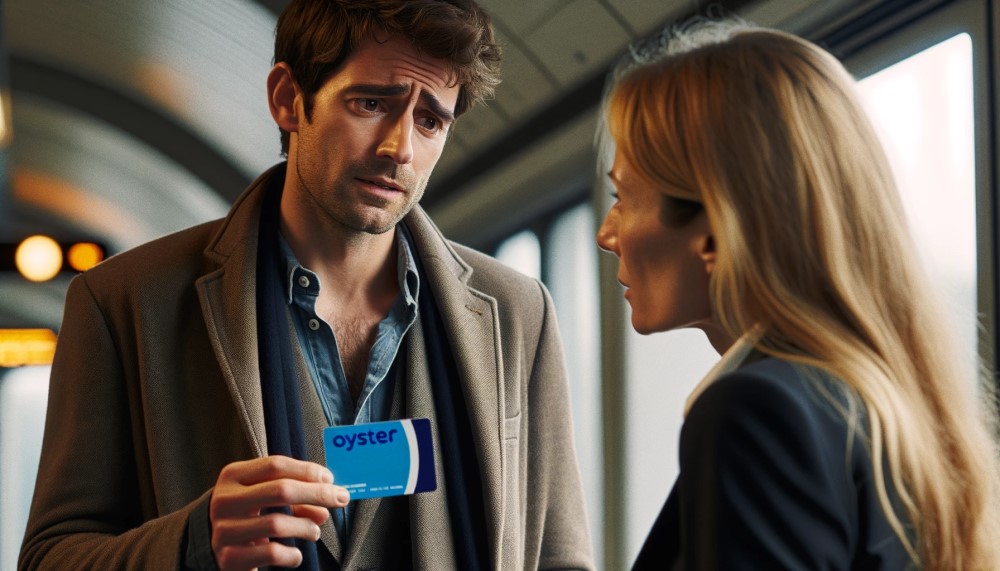What Happens if You Get Caught Using Someone Else’s Oyster Card?
What Happens if You Get Caught Using Someone Else’s Oyster Card?
The Oyster Card represents more than just a piece of plastic; it’s a key to the city’s extensive public transport network. Designed to streamline the process of accessing buses, trams, the underground, and railways, the Oyster Card system is a marvel of modern urban planning.
However, with great convenience comes a set of stringent rules and regulations designed to ensure the system’s integrity and efficiency.
Among these, the non-transferability of the Oyster Card is a rule that is both clear and strictly enforced. Misuse of an Oyster Card, such as using a card registered to someone else, can lead to severe legal consequences.
This article delves into the ramifications of using someone else’s Oyster Card and highlights the crucial role of expert legal advice from Makwana Solicitors, a leading Firm in fare evasion cases.
Understanding Oyster Card Regulations

The Oyster Card system is predicated on a fundamental principle: each card is to be used by the registered individual only. This rule is not merely a suggestion but a legal requirement, integral to the system’s operation.
The misuse of an Oyster Card, including any attempts at fare evasion by using a card belonging to another, constitutes a breach of the Transport for London’s (TfL) terms of use. Such breaches are taken seriously by the authorities and can trigger a series of legal responses aimed at deterring fare evasion and maintaining public trust in the transportation system.
The Immediate Aftermath of Misuse
When an individual is caught using an Oyster Card that is not theirs, the immediate consequences can be both embarrassing and bewildering. The authorities, typically TfL inspectors or police officers, have the right to detain the individual for the purpose of investigation.
This encounter can lead to the issuance of a penalty fare, a formal warning, or in some cases, the confiscation of the Oyster Card. However, these immediate actions only scratch the surface of potential legal repercussions.
Legal Ramifications Explored
The legal framework governing public transportation in England categorises fare evasion, including the misuse of an Oyster Card, as a criminal offence. The ramifications of such an offence are not to be underestimated.
Depending on the severity and the frequency of the violations, penalties can range from fines to criminal prosecution. A criminal record resulting from fare evasion can have profound implications on an individual’s life, affecting employment opportunities, educational pursuits, and even the ability to travel abroad.
Furthermore, the social stigma associated with having a criminal record can lead to long-lasting personal and professional repercussions.
The Spectrum of Penalties

The penalties for using someone else’s Oyster Card can vary widely, based on factors such as the individual’s intent, the duration of misuse, and any prior offences. Fines are the most common penalty, with amounts set to reflect the severity of the offence.
In more serious cases, or where there is a pattern of fare evasion, legal prosecution can lead to court appearances, and potentially, custodial sentences.
Impact on Visas
The impact of being caught using someone else’s Oyster Card on one’s visa status in England cannot be understated. For individuals residing in the country on any form of visa, being implicated in fare evasion or any criminal activity can have dire consequences on their legal status and future applications.
Such an offence, if it leads to a criminal record, can significantly affect the outcome of current visa renewals or future applications for residency or citizenship. The UK Home Office scrutinises the character and conduct of visa applicants and holders, and a criminal record for fare evasion could be perceived as evidence of poor character, potentially leading to the refusal of visa applications or even revocation of existing visas.
This not only underscores the importance of adhering to the law but also highlights the critical need for expert legal advice and representation, such as that provided by Makwana Solicitors, to navigate the complexities of the legal and immigration system in England effectively.
Impact on Employment
The repercussions of being caught using someone else’s Oyster Card extend significantly into the realm of employment opportunities and career progression. A criminal record resulting from fare evasion can be a substantial barrier to employment, as many employers conduct background checks as a standard part of their recruitment process.
Such a mark on one’s record may raise concerns about an individual’s trustworthiness and integrity, leading potential employers to question their suitability for the role. This is particularly pertinent in sectors where ethical standards and security clearances are paramount, such as finance, education, and government positions.
Furthermore, for individuals already in employment, a criminal record can impact internal promotions and may even lead to disciplinary actions, up to and including termination, depending on the employer’s policies.
The stigma of a criminal record can, therefore, have a long-lasting impact on an individual’s career trajectory, underscoring the importance of seeking expert legal advice, such as that provided by Makwana Solicitors, to mitigate these consequences as much as possible.
The Role of Makwana Solicitors

In the face of these daunting prospects, the expertise of Makwana Solicitors becomes invaluable. Specialising in fare evasion, Makwana Solicitors have a deep understanding of the legal issues surrounding public transportation offences, including the misuse of Oyster Cards.
The Firm’s solicitors are adept at navigating the complexities of the legal system, providing clients with advice that is both strategic and tailored to their specific circumstances.
Legal Advice and Representation
The journey through the legal ramifications of an Oyster Card misuse is fraught with challenges. Makwana Solicitors offer comprehensive legal services, from initial advice and representation in court, to negotiating with prosecuting authorities.
Their approach is proactive, focusing on mitigating the consequences of the offence while safeguarding the client’s legal rights and future prospects.
The Importance of Timely Legal Intervention
Engaging legal advice at the earliest opportunity is critical. Early intervention allows for a thorough assessment of the case, the preparation of a robust defence strategy, and, where possible, negotiations with the authorities for an out-of-court resolution.
Makwana Solicitors emphasise the importance of swift action, which can often lead to a more favourable outcome, potentially avoiding the escalation of charges and the attendant legal repercussions.
Why Legal Advice is Imperative

The complexities of the legal system, especially in the context of transportation law, cannot be overstated. The right legal advice can illuminate the path forward, offering clarity on the charges, the legal process, and the potential outcomes.
Expert legal representation can challenge the prosecution’s case, highlight mitigating circumstances, and argue for reduced penalties or alternative resolutions. Moreover, in situations where a mistake or misunderstanding led to the alleged offence, a solicitor can articulate these factors effectively, often leading to a dismissal of charges.
Concluding Thoughts: What Happens if You Get Caught Using Someone Else’s Oyster Card?

The misuse of an Oyster Card can lead to a cascade of legal consequences that extend far beyond a simple fine or warning. The potential for a criminal record and the myriad of associated implications make it imperative for individuals facing such charges to seek expert legal advice.
Makwana Solicitors, with their specialised knowledge in transportation law and commitment to client welfare, stand ready to provide the guidance and representation needed to navigate these challenges. In the face of legal adversity, the expertise of Makwana Solicitors offers a beacon of hope, ensuring that clients receive the support necessary to protect their futures.
Thank you for reading this post, don't forget to subscribe!
Notice: Informational Content Disclaimer
The content provided on this website, including articles, blog posts, and other informational materials, is intended for general informational purposes only. It is not intended as, and should not be considered, legal advice.
Visitors to this website should be aware that the information presented here is not a substitute for seeking legal advice from a qualified solicitor or legal professional. Each individual's legal situation is unique, and the information provided may not be applicable to specific circumstances.
If you require legal advice or have specific legal questions, we encourage you to contact us directly. Our experienced team of solicitors is here to assist you with your legal needs and provide tailored advice to address your concerns.
Please be advised that any communication through this website, including the use of contact forms or email, does not create a solicitor-client relationship. Confidential or time-sensitive information should not be sent through this website. To establish a solicitor-client relationship and discuss your legal matters in detail, please contact us for a consultation.
We strive to provide accurate and up-to-date information, but we make no representations or warranties regarding the accuracy, completeness, or suitability of the information contained on this website. We shall not be liable for any reliance placed on the information provided herein.
Thank you for visiting our website. We look forward to the opportunity to assist you with your legal needs.




